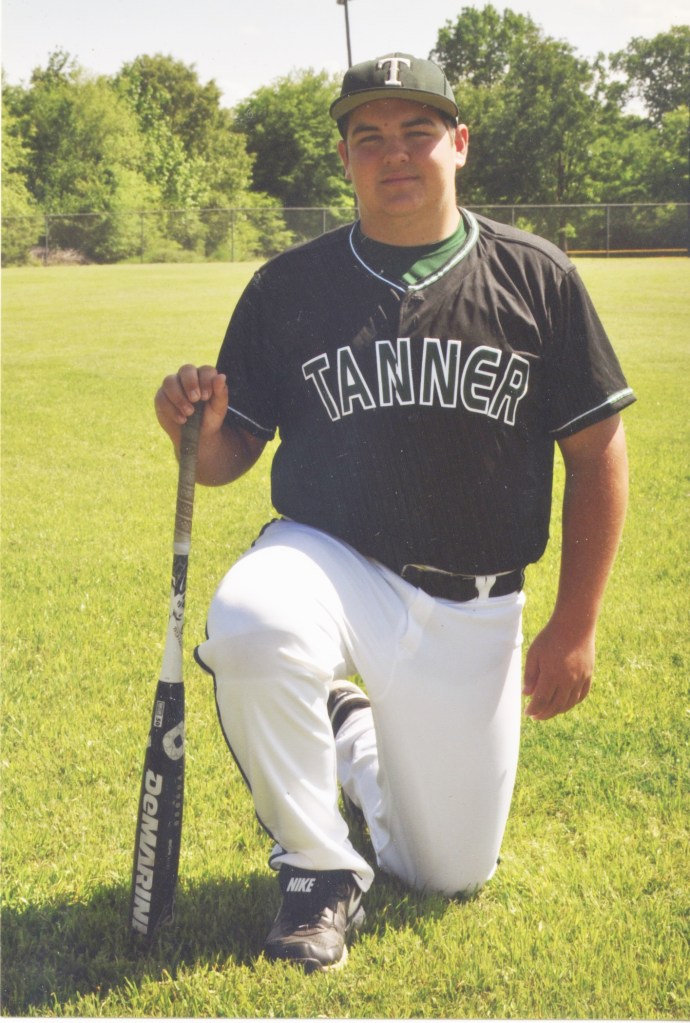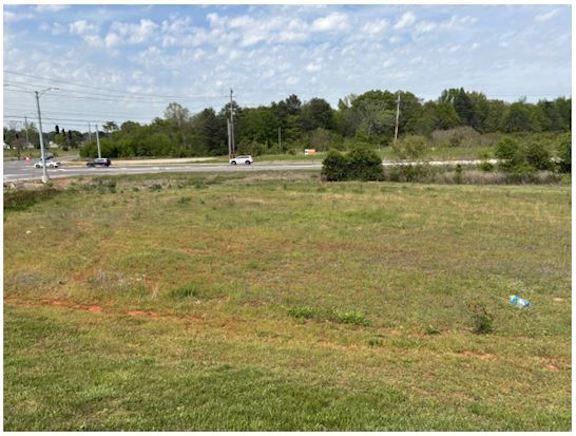‘A bad dream’: Parents hope son’s death helps others
Published 6:15 am Saturday, October 27, 2018

- Courtesy photoPictured here in his uniform for the Tanner High School baseball team, Cole Scott was an avid baseball fan until his death by heroin overdose in 2016. His dad, Dewayne Scott, hasn't been to a game since.
Editor’s note: This is the last in a two-part series of stories about a Limestone County man’s struggle to free himself from heroin, his fatal overdose, the quest to bring his drug dealer to account, and the effects of this journey on his family.
Caring. Thoughtful. The class clown. The kid who liked everybody. These are just some of the ways Dewayne and Leigh Scott describe their son, Cole.
Trending
The one that worried them most was “follower.”
“We talked about that when he was small, that he was a follower,” Dewayne said. “He was that happy, smiling kid who just enjoyed life and everything, but he was a follower.”
“That was his main downfall,” Leigh said.
Like many individuals, Cole first experimented with drugs in high school. Dewayne said getting caught with opiates as a sophomore was the first time Cole ever gave his parents trouble.
“That was kind of a bad sign, but it didn’t change his personality, and he was good after that,” Cole’s dad said.
During this time, Cole also began experimenting with marijuana. Dewayne said a lot of the kids Cole hung out with were experimenting.
Trending
“Some people call it a gateway drug. It might be,” he said. “It might not be. I’m not sure, but what it did, though, is it did lead to other people.”
Cole’s parents said many of the friends he’d grown up with began drifting apart from Cole, replaced by new friends with new connections. Cole graduated high school and fell even deeper into drug use, eventually getting himself arrested in 2013.
“When he was arrested with the marijuana, that was a big hit for us,” Dewayne said. “He wasn’t an addict then, he wasn’t addicted to opiates, but it wasn’t a long time after that.”
Avoiding the sickness
Dewayne said it was within the year following his arrest that Cole’s addiction began to truly take hold. The boy who wanted to be a state trooper when he grew up instead grew up to be an adult who frequently got into car accidents and run-ins with police.
The looks and whispers that followed Cole after his arrest for marijuana only worsened after his addiction to opiates became known. Dewayne firmly believes his son wanted off the drugs, but addiction continued to draw him back.
“He told me a lot of times, ‘I know better, but when you start to get sick, the logic goes out the window and you’re just trying to get through now,’” Dewayne said. “… Once you’re addicted, you’re not using to get high. You’re using to not get sick.”
“It just wires the brain completely and totally different,” Leigh said.
By this point, Cole had moved to heroin, a cheaper way to attain the high he’d gotten from pills. Heroin withdrawal symptoms can vary from person to person, but the International Consultative Panel on Drugs and Driving Impairment reports they can set in as early as six hours after a dose.
Mild symptoms include nausea, sweats, aches and chills. Severe withdrawal may bring anxiety, depression, muscle spasms, vomiting, tremors, diarrhea and insomnia or fatigue.
According to American Addiction Centers, symptoms can last weeks, months or even years, sometimes leading to fatal complications.
Rehab, relapse, repeat
Cole went through multiple detoxification, rehabilitation and sober-living programs before he died. Meanwhile, his parents attended classes to learn about addiction and sobriety, sometimes struggling as counselors reminded them it wasn’t their fault and it wasn’t in their power to fix.
However, they supported their son as best they could. Cole’s first rehab stay was a 28-day program in Madison. He was eager to go, but the family was unprepared for when he got back out.
“A lady at a parent meeting asked where were we going to send Cole after he got out, and we were like, ‘Well, he’s just going to go home, he’ll be alright,’ and she said, ‘No, you can’t do that,’” Leigh said. “I wish we’d listened.”
Dewayne said Cole was clean for about six months before they began spotting Cole’s car at the homes of known drug dealers in their community and found evidence of drug use in their own home.
“I still have animosity toward the people in this county who are selling it to people,” Dewayne said. “They’ll know right off I’m talking about them. Law enforcement knows. Everybody knows. It’s not a secret.”
However, while his dad was mad at dealers for “trading misery for money,” Cole refused to blame others for his situation.
“He said, ‘Dad, I’m the one that made the decision to do this. … I know I hung around them and they was doing it, but didn’t nobody make me, so stop blaming them,’” Dewayne said.
Cole’s second stint was also a decision made by him. Cole told his dad he was tired of living like an addict and revealed he had already set up an appointment with Bradford Health Services in Warrior. He planned to do whatever it took to be there.
This time, he followed it up with a stay in The 4th Dimension, a sober-living community in Hoover. Dewayne said he stayed there six months and received a key ring designating seven months sober.
The final stay
Leigh remembered talking to her son as he packed his things to leave 4th Dimension.
“I told him if he didn’t stop messing with drugs, it was going to kill him, and he just looked at me and said, ‘Momma, I don’t want to die,’” she said.
People he met in Warrior had encouraged Cole to stay away from Limestone County if he wanted to stay clean. Cole tried to get a job and set up life for himself in Hoover, but he eventually drove back to Limestone and relapsed.
“We didn’t know much about it until he called (Leigh) one day and said, ‘I want to check back into Bradford. I get paid tomorrow and I know what’s going to happen once I get paid,’” Dewayne said.
Money had often weighed on Cole’s mind. His dad believes he may have kept the secret because he felt guilty about everything his parents had spent to keep him clean.
RehabReviews.com lists a 28-day stay in the Warrior Lodge or Madison Residential Treatment Center of Bradford Health Services as costing $19,800. Cole had already stayed at both, in addition to time at The 4th Dimension. Insurance had only helped cover a portion of the cost.
Cole went back to Bradford one last time to detox, then moved to ALR SoberLife in Bessemer. During this time, Dewayne found out he was losing his job. The plan was for him to get a job and apartment in the Birmingham area, where he could help his son stay clean.
Unfortunately, those plans were derailed when Cole checked himself out of the facility. His parents believe he got a number from a local gas station that led him to Edward Lee Henderson Jr., otherwise known as “Hot Boi Eddy.”
Leigh said if they’d known Cole was struggling, they would have packed him up and brought him home Christmas Day 2016, when the family met in Hoover and celebrated the holiday at the movies together. Instead, they went home and returned one week later to find Cole dead in a Salvation Army parking lot.
The investigation
“Sometimes it seemed like a bad dream,” Dewayne said of the year following his son’s death.
Authorities were able to return many of Cole’s items, including a cellphone he had used to contact Henderson. When they noticed Henderson was still trying to contact Cole, investigators told Dewayne and Leigh to keep the phone charged and in service but leave it in a drawer.
“You’d want to look and there’d be stuff like, ‘New fire on deck,’ ‘New product on deck,’ ‘3 for 2 special’ or ‘got some new stuff coming in,’” Dewayne said. He said there would also be phone calls from Henderson, and Dewayne would rely on a Drug Enforcement Administration agent to explain some of the slang in Henderson’s messages.
However, they were instructed never to reply.
“The (district attorney) felt that if he was pushing it on somebody and we responded, it might be viewed as enticement or entrapment,” Dewayne said.
Henderson was arrested July 4, 2017. He pleaded guilty in April and was sentenced earlier this month to 24 years and four months in prison.
Moving on
Dewayne and Leigh said they’ve heard several stories in the years since Cole first got into drugs. When Dewayne broke down at work, his coworkers came forward with their own experiences. When they went to borrow money for Cole’s funeral, the lady at the bank shared her story.
Some people went out and shared Cole’s story to help others get clean. Dewayne remembered one addict in particular who would travel to tell Cole’s story to other addicts. He’d been sober for a long time, Dewayne said, but in May 2017, he relapsed and died of an overdose.
“I remember his mother talking about how sorry she was over Cole, and how lucky she felt to have her son still alive, and then two months later, we were talking at her son’s funeral,” Dewayne said.
“Cole even talked about it,” Leigh said. “How two people could do the same drug and one person could walk away from it and never think about it again, and another one — him, for example — it’s all they thought about.”
Cole’s parents said they want his story shared because it might just help another family member avoid the pain and grief they go through.
“It’s daily, and we’ll go through it for the rest of our lives,” Leigh said.
“It doesn’t just destroy that person,” Dewayne said. “It destroys the family.”
Things that Cole used to love, such as baseball and going to the beach, are tough to experience for the family. Dewayne said he doesn’t think he’s been to a game since Cole died.
He said he left his six-figure salary as an IT director with a plan to move to Birmingham, but since discovering his son’s body, he can’t find the motivation or strength to handle the stress of a similar job. He now works locally in computer programming.
Last but not least, it’s put a strain on their 26-year marriage. The pair admit there are days when they question every decision they’ve made as parents or they snap at each other to deal with their grief. There are also days when they feel it’s them against the world and they can’t imagine life without the other to help them get through the day.
Holidays are particularly rough. Dewayne said they have an attic filled with bins of Christmas photos, decorations and other items that go untouched.
“Those are ruined forever,” he said. “… Christmastime just feels like a sick joke.”
However, he said, they have met a lot of nice people, and he knows some of Cole’s friends got sober because of his story. Dewayne said he’s grateful for the 22 years he did get with his son, and Leigh encouraged people to speak of Cole and remember him.
“It might make us sad, but it’ll also make us happy that people are remembering him,” she said.





